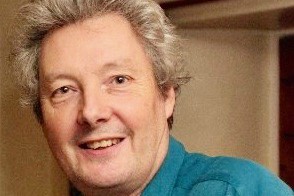Shifting sands of seaside practices

A strange pattern has emerged over the past few years, of practices at seaside towns collapsing – in Folkestone, Frinton-on-Sea, Bridlington, Brighton, Plymouth, Prestatyn and Colwyn Bay, to name a few.
These areas used to attract doctors with ease, but many now struggle to recruit at all. They seem to have acted as weather vanes foretelling the stormy conditions ahead for the rest of the UK.
My own Prestatyn practice handed back its contract in April 2016, after younger partners left prematurely and multiple attempts to recruit failed.
Facing 18,000 patients with four partners, our contract became unsustainable, especially as only one partner was under the age of 50.
I believe this scenario was largely reflective of other similar resort town practices around the UK.
So, what is unappealing about resort practices?
It’s not the money; many resort practices have significantly higher incomes than average. Nor is it the quality of the service – our practice had high QoF points and offered an excellent quality and range of care.
It’s not the towns themselves. A seaside town is generally a good place for a young family to settle and housing prices are often reasonable.
The reason is clear: it is workload. For many coastal practices, it is quite simply overwhelming.
I had not realised the scale of this until I became a locum. Since then I have worked across all types of practice across North Wales – urban, rural, deprived, GMS and managed – and none of these has workloads coming close to that of my previous seaside practice.
GP trainees have strong word-of-mouth networks. I suspect that practices who handed back contracts are the ones where the word is out that the workload is crippling, resulting in no recruits coming forward.
Seaside practices often have an aged population, indeed the term ‘Costa Geriatrica’ was coined for the Llandudno area. This elderly population have often, in retirement, moved away from family and friends, relying heavily on local social and health services for support when illness, bereavement or frailty intervene. A doctor’s visit can be the high point of the social calendar.
With such demography comes pathology, seemingly rising exponentially in the over-70s. Many moving to seaside towns suffer from the heritage of industrial disease, adding to this high burden of morbidity.
Elderly patients with multiple pathology create a ‘double whammy’ for practices, needing longer consultations and more frequent reviews, often making a 15-minute appointment, beloved of RCGP academics, an unrealistic goal.
On top of this, the collapse of resort practices has created ripples that flow deep into the surrounding locality, putting increased pressure on nearby practices.
In North Wales, few localities are unaffected by practice closure. Fifteen practices have resigned to date, and many more have serious sustainability issues. Seven seaside practices in Prestatyn, Colwyn Bay, Conwy and Criccieth have resigned their contracts, resulting in enormous stress in the surrounding localities.
Many resort towns are not located near large cities, so medical schools are often considerable distances away. The resulting lack of long term placement of medical students further hinders recruitment.
This is especially acute in North Wales, where the natural alma maters of Liverpool and Manchester have been relegated by the forces of devolution, directing most undergraduate training 200 miles away to Cardiff.
North Wales also has the quirk of being seen as an enclave, where the myth exists that you have to speak Welsh to work there.
The rest of the country must take lessons from the experience in resort towns, as their problems are not unique – the causes of practice collapse are likely to be reflected across the UK as the population ages.
The future has to be better than it is now in North Wales: managed practices are taking up the challenge of providing health care in areas where GMS provision has failed, giving a greater variety of working patterns, but the quality of such care delivery has yet to be evaluated satisfactorily.
We have many industrious and evangelical GPs striving to sell the amazing experience of working in North Wales where the people, scenery and environment make it a wonderful place to live and work. The close proximity to Chester, Liverpool and Manchester is an added bonus.
I hope we get others to understand what we have to offer before it is too late.
Dr Eamonn Jessup is a locum GP in North Wales Chair of North Wales LMC
Pulse July survey
Take our July 2025 survey to potentially win £1.000 worth of tokens











